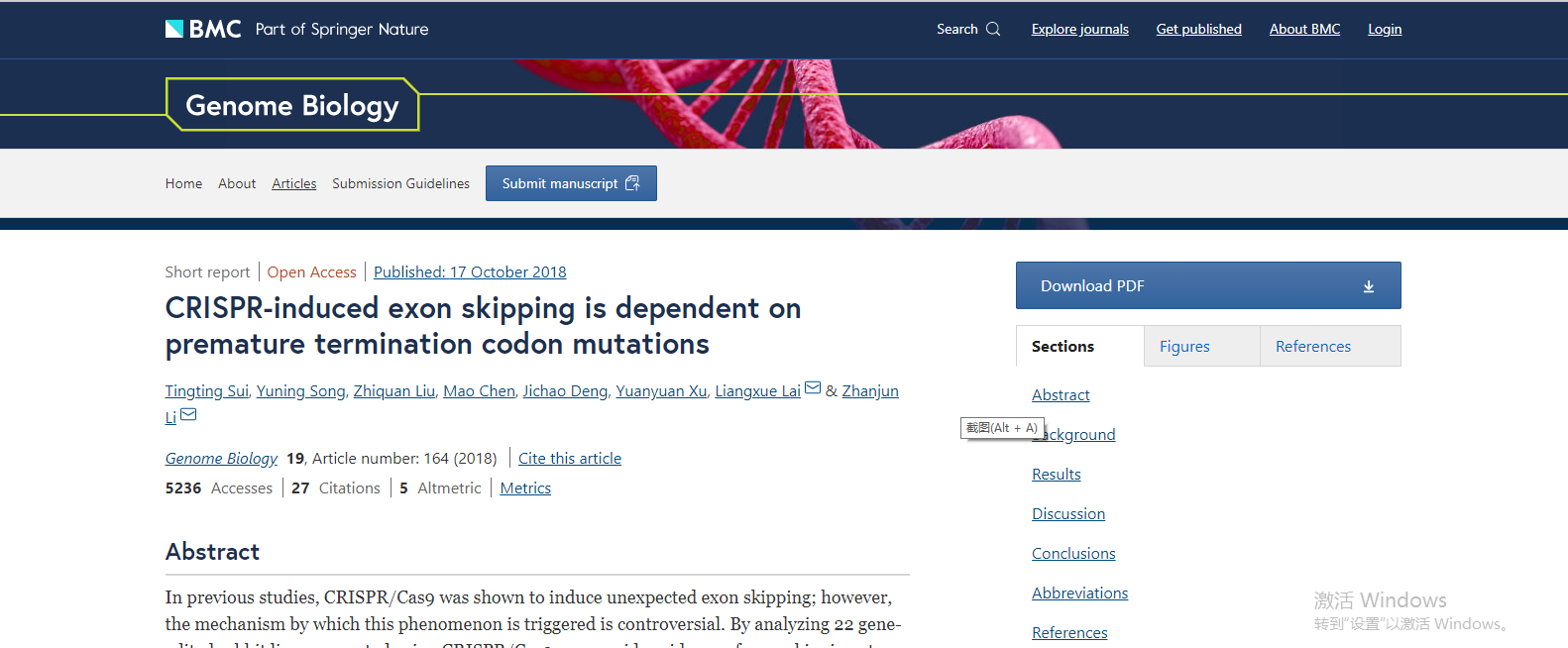
On October 17, 2018, the internationally renowned academic journal Genome Biology (IF=13.2) published online research results with Jilin University as the first author unit 'CRISPR-induced exon skipping is dependent on premature termination codon mutations, DOI: 10.1186/s13059- 018-1532-z'. This study revealed for the first time that the exon skipping caused by the CRISPR/Cas9 system is due to the premature termination of the gene coding frame (Premature Termination Codon, PTC).
At present, CRISPR/Cas9 technology has become an eye-catching gene editing technology, which uses the non-homologous end joining repair mechanism (NHEJ) to randomly insert or delete bases at DNA breaks, resulting in frameshift and non-frameshift of genes. Or premature termination of mutation (PTC), which eventually destroys the normal function of genes. Studies have shown that CRISPR/Cas9 technology can cause unexpected exon skipping, also known as alternative splicing, which plays an important role in regulating human gene function and the occurrence and development of various diseases. However, the molecular mechanism of RNA missplicing or exon skipping caused by CRISPR/Cas9 technology is still unclear.
The team members analyzed the exon skipping patterns of more than 20 gene-edited rabbits, and revealed for the first time that premature termination mutation (PTC) is an important factor causing exon skipping caused by CRISPR/Cas9. Further analysis and verification of the reported exon skipping database and clinical cases provide an important method for predicting CRISPR/Cas9-mediated exon skipping. In addition, because exon skipping has potential clinical application prospects, this research also provides a new strategy for CRISPR/Cas9-mediated gene therapy.
Professor Lai Liangxue and Associate Professor Li Zhanjun are the co-corresponding authors of the paper, and Dr. Sui Tingting and Song Yuning are the co-first authors. The research was funded by the National Key Research and Development Program ‘Establishment of Large Animal Models of Neurological Diseases and Evaluation of Stem Cell Therapy’.
Link to the paper: https://genomebiology.biomedcentral.com/articles/10.1186/s13059-018-1532-z